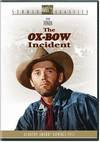13 Women
13 West Street
Nevada Smith
There’s an old saying that revenge is a dish that is best served cold. While I will concede that there is a possibility the aforementioned entrée can be served cold, I seriously doubt it. People seeking revenge are generally angry – and if their anger doesn’t create hatred, then it was born of hatred. Anger and hatred are, to my mind, heated emotions.
I suppose one could argue that revenge can also contain the rather frosty elements of meanness and cruelty. But I would counter that people who are mean and cruel possess a self-hatred that is hidden by an aura of coolness. It’s something like throwing ice on a sizzling frying pan: It may start out frozen, but it ends up as hot steam. In the films discussed here, anger, hatred – and frustration – lead to revenge tinged with cruelty and meanness.
In 13 Women (released in 1932 in black and white), Ursula Georgie is a woman born of mixed parentage, white and Asian, who craves acceptance in the “white world.” She manages to save enough money to go to a California college but is shunned and mistreated by members of a sorority after they learn of her background. She leaves the school without graduating and passes herself off as an astrologist who reads tarot cards and tells horoscopes. Some 20 years later, she actively seeks the revenge she has wanted since she left college – killing off the sorority sisters and members of their families one by one with the help of a man who is in love with her. However, when her attempt to kill the son of the leader of the hated clique is foiled, she throws herself off the back of a moving train, presumably killing herself.
The film 13 West Street (1962, b&w) is about a scientist named Walt Sherill who, while driving home through a seemingly deserted area in Los Angeles, runs out of gas and then is mugged by five hoodlums – some of whom are rather well off. He becomes frustrated with the police investigation of the incident and decides to mete out his own brand of justice on the young men who attacked him. Walt, who hires a private detective to help his crusade, eventually loses his job and incurs the wrath of innocent people who had nothing to do with his mugging. He is also chastised by the police for interfering with their investigation.
The scientist’s search frightens one of the guilty gang members so much that he commits suicide. Now, it’s the gang leader’s turn to seek revenge, which he does by terrorizing Walt’s family. Then, Walt traps the gang leader in his own home and is on the verge of killing him. But for some reason, Walt cools down and decides to turn the gang leader over to the police.
Nevada Smith (1966, color) focuses on another person of mixed parentage. Set in the western United States in the 1890s, Max Sand seeks revenge for the murder of his white father and Native American mother by three drifters. Ironically, Max is urged on in his endeavor by a white woman who is a family friend and whose husband tries to convince him that the quest won’t be worth it.
The three men who Max is seeking split up. It takes a while but Max catches up to the first one and kills him in a knife fight that leaves him gravely wounded. After being nursed back to health by an Indian woman, he learns that another on of his prey is in a Louisiana prison. Max then allows himself to get caught during a holdup, is sent to the prison and befriends the man his has been hunting – even saving his life. After several months, Max and his prey escape from the prison with the help of another Indian woman who has fallen in love with him. But as they make their way through the swamp, the woman gets bitten by the snake. As she is dying, Max reveals his identity to the other man before killing him.
After the escape, Max continues his search for the final killer, named Tom Fitch, and manages to join his gang of outlaws. Fitch, knowing what has happened to his previous two partners, is suspicious of Max and eventually they start shooting at each other. By a river, Max wounds Fitch in each leg but can’t bring himself to kill the helpless man – despite the fact that Fitch pleads with Max to finish the job.
It is interesting to note that in none of these films did the person seeking revenge complete their self-imposed assignments to the satisfaction they sought when they began their quests. Although her own death provided Ursula Georgie with an excuse, Walt Sherill and Max Sand apparently couldn’t bring themselves to ride that train to the end of the line either.
I believe that Walt and Max came to realize that revenge was a very unsatisfying – and unjustifiably cruel – endeavor. It turned them into the people they despised, and it didn’t change what had happened to them or their families. In other words, it was a waste of time.
Wednesday, March 25, 2009
Subscribe to:
Post Comments (Atom)






























































No comments:
Post a Comment